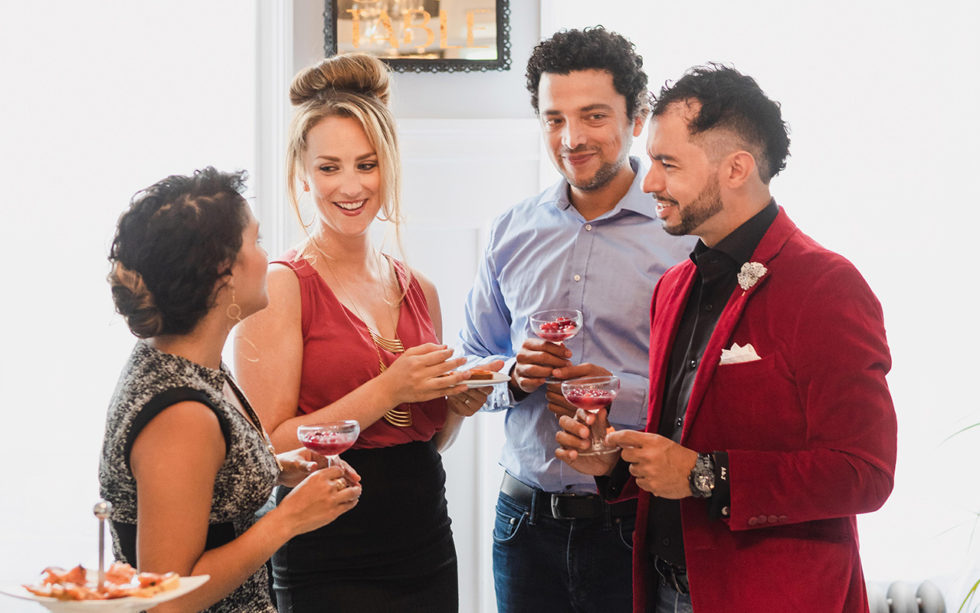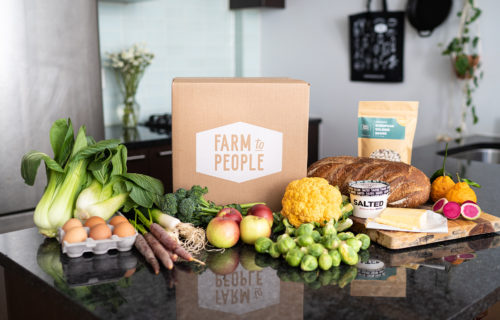
How to Tackle Food Restrictions During the Holidays

For many people with food restrictions, the holidays tend to be extra tricky times. So if you follow a specific diet due to allergies, intolerances, sensitivities, a medical condition, or simply because you avoid certain foods to maintain optimal health, this article is for you. Missing out on family gatherings because you are worried about not having any food options or nibbling on a carrot while watching everybody else enjoy your favorite childhood foods doesn’t sound like holiday fun to me. I have experienced this myself, and it has brought a lot of stress to my life. However, simply eating foods that I would have to pay for later was not a great solution for me either. Today I am sharing my favorite tips with you that have helped me maintain health and happiness during the holiday season. Depending on how severe your reactions to certain foods are some of these tips may or may not apply to you.
Brainstorm
Which foods do you normally struggle to avoid or feel deprived of during the holidays? Becoming aware of these “trigger foods” presents the first important step in tackling this issue. Focus on finding alternatives for those foods and bring them with you.
Plan ahead
Whether you are going to a friend’s or family member’s house or to an office holiday party, being prepared is the best bet to tackle difficult situations surrounding food. Don’t assume that there will be foods available to you if you have restrictions. Asking, but not demanding, beforehand is the best thing you can do to know how to approach the situation. So call your friend and family member, check the menu of a restaurant, or speak to the manager.
Learn how to cook
There is nothing more empowering than learning how to prepare your favorite meals free from your specific restrictions. Having to rely on other people and expecting them to understand or consider your food restrictions can be a lot to ask and puts you in a position of feeling helpless if things don’t work out the right way. If you need help with recipes my latest cookbook “ENJOY” is specifically geared towards special occasions and holiday foods for people with food restrictions such as gluten-free, dairy-free, paleo, soy-free, nut-free, egg-free and AIP.
Bring a dish to share
If you are going somewhere where people are welcome to contribute to the meal, volunteer to bring a version of a normally problematic food. Again, the more you know about what kind of foods will be there and how they have been prepared, the easier it is for you to be prepared. If you are not sure whether the main courses will be safe for you to eat, then volunteer to bring a safe one yourself. That way you know for sure that you don’t have to be hungry. You will be surprised about how many other people also have food restriction and they will be thankful you brought something they can enjoy as well. A lot of times, desserts tend to be problematic so if you are in a situation where you can trust that there will be some main course options for you, bring a dessert or a snack.
Bring your own food
If you are going to a holiday dinner where people don’t contribute to the meal and you found out that there won’t be any options for you, simply explain the situation to the host and bring a meal for yourself.
Be the host
This will give you the ultimate control over what is in your food. If people want to bring food, either share easy recipes with them that are free from the foods you cannot eat or make sure they bring something that is not crucial for your happiness. Also, ask your guests if they have any additional food restrictions you need to know about. It will make people who do have restrictions very happy and you can start a trend in your circle. Soon that question could become the new norm.
Eat beforehand
If you are going to an event where you have no idea what the food will be like, assume that you won’t be able to eat there and mentally prepare yourself to go just to socialize. This way you set yourself up for less disappointment. It adds some extra excitement if you actually get to eat something unexpected like dessert…Surprise!! Make sure you eat a proper, filling meal beforehand. Being hungry is not helpful. Also if not being able to eat desserts will make you unhappy or stressed, make sure you have a dessert you tolerate before you go.
Shift your mindset
Remember that you are doing this for yourself, to make the best decisions for your body, your health, and your future. If temptations are very hard, remember that the aftermath might not be worth it. If food sensitivities are not a big issue for you, then eating something that is not optimal might still be better than having a lot of stress surrounding your food choices. This is a highly individual decision that depends on your condition.
Don’t be hard on yourself
Don’t stress if you go overboard or don’t get it right all the time. It is important that when you make the decision to eat something that you normally wouldn’t, that you own it and don’t feel any guilt afterward. It is okay as long as you go back to eating healthier the day after. Guilt and stress are so bad for you, so make sure that you actually enjoy every single bite, otherwise, it totally defeats the purpose. A lot of people do well with an 80/20 rule (eat optimal 80 percent of the time and indulge 20 percent of the time). This obviously doesn’t apply if you have severe allergies or reactions to food.
Suggest activities that don’t involve food
Suggest something different to meet friends and family members, for instance, a fun activity that doesn’t involve food. Going ice skating, hiking or simply taking a nature walk are great examples that have the extra benefit of movement. Especially during the holidays, we can all greatly benefit from actually using those extra calories.
Know that it will get easier with time
If this is your first year with food restrictions, I know from my own experience that it can feel quite overwhelming at first. But know that it will get easier. Especially if you have been told by a doctor to cut out certain foods it can feel like a huge loss at first, because it feels like you are not doing it by choice. The journey of food restrictions just like everything in life comes with a lot of highs and lows but in my opinion, it ultimately gets easier the longer you have done it. Preparation, shifting your mindset by focusing on the positive instead of the negative and learning how to replicate your favorite foods is key to maintaining a healthy lifestyle in the long run.
If you would like more tips like these and delicious holiday recipes, grab a copy of my new cookbook. Now I would like to hear from you? What is your favorite way to tackle the holidays with food restrictions? Please comment below and if you have any questions I would love to answer them for you.
Happy healthy holidays,
~Annika



Add A Comment